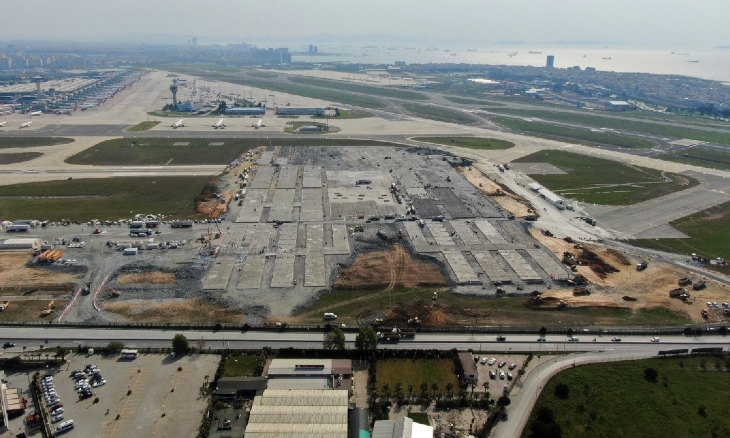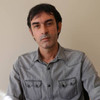Lunatics on TV cannot conceal the AKP government’s failures
As the pandemic ravaged Turkey, it turned out the government’s “public health” policies were cynically tied to commercial opportunities. In a country constrained by minimum legal control, the hospital project adjacent to the Atatürk Airport would have likely been the subject of an investigation and ended up before a high court. In fact, such things did happen in Turkey a while back.
Recent incidents in Istanbul regarding the construction of hospitals offer a striking picture of the new regime in Turkey. If some we wondering what the pandemic would change in Turkey, the answer lies in these incidents. The two lunatics who discussed death lists on TV, coup conspiracies, the release of retired gangsters from jail and the ban on commenting the plummeting value of the Turkish lira all made sense with regard to those incidents.
On April 6, President Erdoğan announced that in order to deal with the pandemic, field hospitals with 1,000 rooms would be erected within 45 days at Atatürk Airport and in Sancaktepe in Istanbul. One day later, it was observed that the hospital that the government was meant build at Atatürk Airport was in fact being built on land adjacent to the airport, not within the airport’s vacant buildings. The following day, we found out that the Presidential Palace’s contractor, Rönesans Holding, had undertaken the project. Two days later, we found out that the company had begun preparations a month earlier, though no one knows whether a tender has been held. On May 9, Erdoğan admitted the hospital would be used for medical tourism.

As the pandemic ravaged Turkey, it turned out the government’s “public health” policies were cynically tied to commercial opportunities. In a country constrained by minimum legal control, such a project would have likely been the subject of an investigation and ended up before a high court. In fact, such things did happen in Turkey a while back.
Back in 1993, the Minister of Public Works and Settlement İsmail Safa Giray stood before the Supreme Court on the grounds that he had not abided by the necessary rules and procedures in a tender for a highway between Istanbul and Ankara. İsmail Safa Giray was accused of having not publicized the tenders and of having raised the legal additional advance rate of 20 percent to 25 percent for a particular firm. Giray was subsequently charged of having caused a public damage of 15 million dollars. Still, he was acquitted with the counter votes of four members. During that time period, law and control mechanisms were effective. After a quarter of a century, one can still examine official documents, parliamentary inquiries and audit reports.
For instance, we understand from Giray’s files how justice was not carried out. We understand on what grounds the four members counter-voted, the stance political parties adopted and the attitude of bureaucrats as taxpayer revenue was embezzled. Based on documents, one can determine the functioning of the state apparatus’ intricate ways, its weaknesses in the face of conflicts of interest as well as its legal boundaries.
The current hospital project offers more reasons than Giray’s case to face legal scrutiny and draw the involvement of the Supreme Court. Its lack of legal oversight is astounding.
In fact, are any procedures followed at all, except for a single person seizing public land and offering it to his friends? This shows that the government has largely seen the coronavirus crisis as an opportunity.
In contrast to previous governments, rather than circumventing the law, the AKP has always sought to suit its political and economic policies to the to laws it enacts. Yet nowadays, it does not even feel the need for this. It regards issuing public announcements or following tender laws as burdens. The Turkish bureaucracy has been boiled down to simple paperwork tailored to allow for a fast delivery of Erdoğan’s decisions.
A project that costs millions of dollars in public funds is now carried out according to Erdoğan’s personal whims. He himself picks the location, decides on the amount of money to be spent and chooses the constructor.
Yet this practice is a double-edged sword. While it disencumbers the government from the need for judiciary legitimacy, it leaves it without protection.
It may seem that annulling the constitution through decrees, connecting the treasury to one’s son-in-law, replacing the bureaucracy with the party and subordinating all institutions so that they need the president’s signature strengthen Erdoğan’s power. Yet such practices rip off the clothes that provide him with privacy. Now, the president is compelled to respond to all his failures, such as the chaos that occurred in the distribution of masks and the shortage of cologne.
And as his failures become increasingly apparent, he hurls insults at his opponents, brings up conspiracy theories and uses the Diyanet (Turkey’s Religious Affairs Directorate) to issue fatwas. The usual recipe.
But the government is forced to acknowledge that its source of legitimacy, the ballot box, is inevitably turning against it.
This is something even the most creative deliriums of the lunatic fringe cannot conceal. This is the nakedness of the king who exclaims “I am the state!” until someone unexpectedly replies: “the king is naked!”

